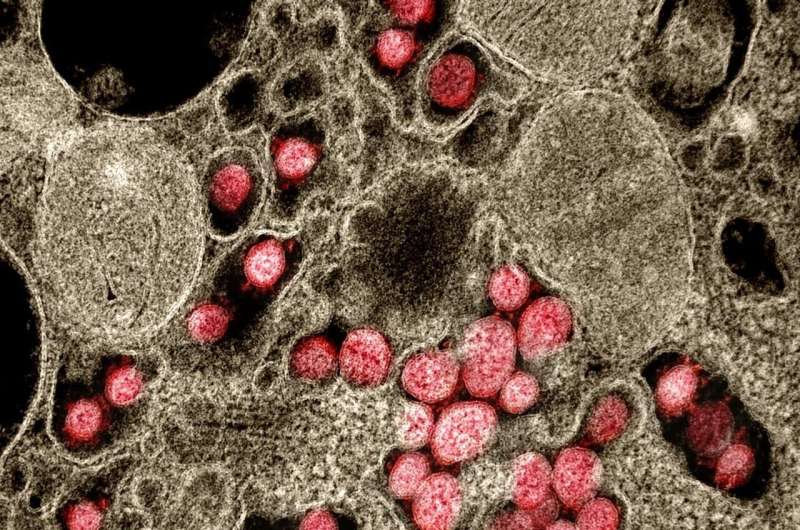Discerning molecular interactions may be target of precision medicine for severe COVID-19

Scientific studies rarely focus on long non-coding RNA molecules (lncRNAs), even though they potentially regulate several diseases. The role of several lncRNAs in anti-viral inflammatory response regulation has recently been reported. Considering their significant regulatory function in immune response, researchers from the Azrieli Faculty of Medicine of Bar-Ilan University sought to identify lncRNAs co-expressed with human genes involved in immune-related processes during severe SARS-CoV-2 infection in the lungs.
Recent studies demonstrated that patients afflicted with severe SARS-CoV-2 infections present increased levels of pro-inflammatory plasma cytokines, as opposed to milder cases, highlighting the release of inflammatory cytokines as being central to COVID-19 severity. However, the underlying molecular mechanisms responsible for dysfunctional immune responses during COVID-19 infection remain elusive.
In a paper recently published in the journal Viruses, the researchers demonstrated that lncRNAs are indeed potential regulators of anti-viral response during severe SARS-CoV-2 infection. Using the available transcriptome data from the lung cells of severely affected COVID-19 patients and SARS-CoV-2 infected lung-cell-lines, they constructed a gene co-expression network that can measure the relationship of gene expression patterns across a group of samples. This analysis enables them to identify four differentially expressed lncRNAs that are found to be strongly correlated to the protein-coding genes in a novel network enriched for different immune-related processes associated with dysregulated cytokine production. These four lncRNAs were also identified as "hubs"—important nodes in this co-expression network, signifying their association with cytokine over-production due to fierce immune response.
The finding suggests that the aberrant expression of lncRNAs can be associated with cytokine storms and anti-viral responses during severe SARS-CoV-2 infection. Thus, the present study uncovers the potential associations of lncRNAs in cytokine and interferon signaling during the response to severe SARS-CoV-2 infection in the lungs. This could provide valuable insight into pro-inflammatory cytokine production and how to mitigate it. It could also potentially be utilized as a future drug target to combat the hyper-inflammation caused by SARS-CoV-2 infection.
"It is remarkable that a major part of the human genome is filled in by non-coding regulatory elements, formerly known as 'junk DNA.' Among these are the long non-coding RNAs (lncRNAs). These lncRNAs are receiving more and more recognition as the potential regulators of several diseases," says Dr. Milana Frenkel-Morgenstern, of Bar-Ilan University's Azrieli Faculty of Medicine, who led the study with Prof. David Karasik.
This study sheds light on the mechanisms behind COVID-19 severity and dysfunctional immune responses. Understanding the molecular interactions behind the immune dysfunction during severe COVID-19 infection in the lungs should help inform the design and development of novel approaches for treating severe COVID-19 patients.
The researchers plan to validate their findings on human samples in collaboration with several of Israel's health care centers. Further, they will aim to determine which drugs from their COVID-19 drug database may inhibit the cytokine storm generation in COVID-19, and will design experiments to test the efficacy of those drugs.
This study was supported by a grant from the COVID-19 Data Science Institute (DSI) at Bar-Ilan University and a PBC fellowship for outstanding postdoctoral researchers from China and India (to Dr. Sumit Mukherjee, who participated in the research) from the Israel Council for Higher Education.
More information: Sumit Mukherjee et al, mRNA-lncRNA Co-Expression Network Analysis Reveals the Role of lncRNAs in Immune Dysfunction during Severe SARS-CoV-2 Infection, Viruses (2021). DOI: 10.3390/v13030402



















